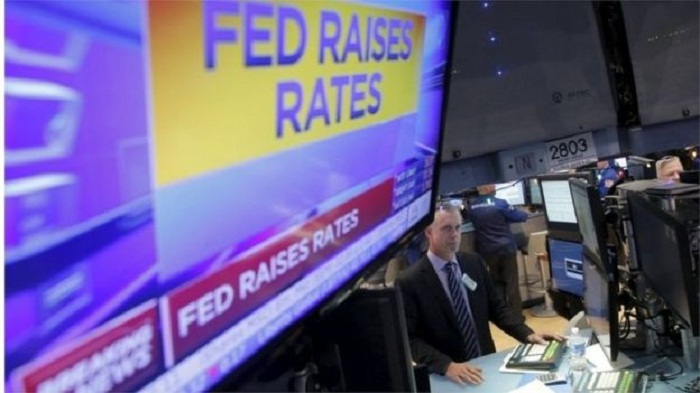Yellen also said the economy is “nearing” the Fed’s goals of full employment and stable prices. The Fed chair didn’t discuss the specific timing of a rate move in her first public comments since June.
“September is certainly on the table, a possibility, and being considered,” said Laura Rosner, senior U.S. economist at BNP Paribas in New York. “She strongly is keeping that in place. I think she’s putting the emphasis on the data and how the labor market performs, and that’s really what we should be watching.”
The Federal Open Market Committee raised its target for the federal funds rate to a range of 0.25 percent to 0.5 percent in December, after keeping the benchmark near zero for seven years. The FOMC’s next meeting is on Sept. 20-21.
Delayed Hikes
Despite their repeated intentions to raise the rate again, officials have skipped a hike at all five meetings this year, and futures markets have priced in about a 30 percent chance of another increase next month, the second-to-last gathering before presidential elections in November.
“While economic growth has not been rapid, it has been sufficient to generate further improvement in the labor market,” Yellen said at the Kansas City Fed’s annual conference, the title of which is “Designing Resilient Monetary Policy Frameworks for the Future.”
“Looking ahead, the FOMC expects moderate growth in real gross domestic product, additional strengthening in the labor market, and inflation rising to 2 percent over the next few years,” Yellen said. “Based on this economic outlook, the FOMC continues to anticipate that gradual increases in the federal funds rate will be appropriate over time to achieve and sustain employment and inflation near our statutory objectives.”
Softer Growth
A Commerce Department report released earlier Friday showed the U.S. economy grew less than previously reported last quarter on lower government outlays and a bigger depletion of inventories, capping a sluggish first-half performance propped up mainly by consumer spending. Gross domestic product, the value of all goods and services produced, rose at a 1.1 percent annualized rate, down from an initial estimate of 1.2 percent, the report showed.
“If there was some doubt about whether or not rates will come up this year, there are fewer doubts today,” said Roberto Perli, a partner at Cornerstone Macro LLC in Washington. “September? Let’s see how the employment data come in. If it’s another strong one, a lot of people on the FOMC will have a strong case to move.”
The U.S. Labor Department releases the August payroll report on Sept. 2. Analysts surveyed by Bloomberg expect employers added 185,000 jobs last month after adding 255,000 in July, and they predict the unemployment rate nudging down to 4.8 percent.
The Fed chair’s speech comes amid a reassessment among central banks globally about future strategies for monetary policies, a topic she addressed in the second half of her remarks. Aging populations, declining productivity and below-target inflation rates are likely to result in lower peaks in their policy interest rates. That means central banks are likely to reach the zero boundary on their policy rates faster in the next recession.
San Francisco Fed President John Williams, Yellen’s former research director when she was head of that bank, urged central banks in an essay earlier this month to “carefully reexamine” their strategies, and mentioned the possibility of raising inflation targets, among other options.
Enough Ammo
By contrast, David Reifschneider, a special adviser to Fed governors, argued in a paper that “even in the event of a fairly severe recession, asset purchases and forward guidance should be able to compensate” for the Fed’s limited scope to reduce short-term rates.
Yellen’s review of the Fed’s "toolkit" began with a spirited defense of techniques used during the financial crisis, including bond purchases and pledges to hold rates low for an extended period. She made clear the Fed should retain those new tools. Those may be needed again, she said, as the next recession may arrive before interest rates rise to levels normally seen during an economic recovery.
“We expect to have less scope for interest rate cuts than we have had historically,” she said.
Without embracing their views, Yellen acknowledged that economists, including some prominent Fed officials, have suggested the Fed consider broadening its asset purchases if that strategy is required again, and raising its inflation target. “The FOMC is not actively considering these additional tools and policy frameworks, although they are important subjects for research,” she said.
More about:
















































